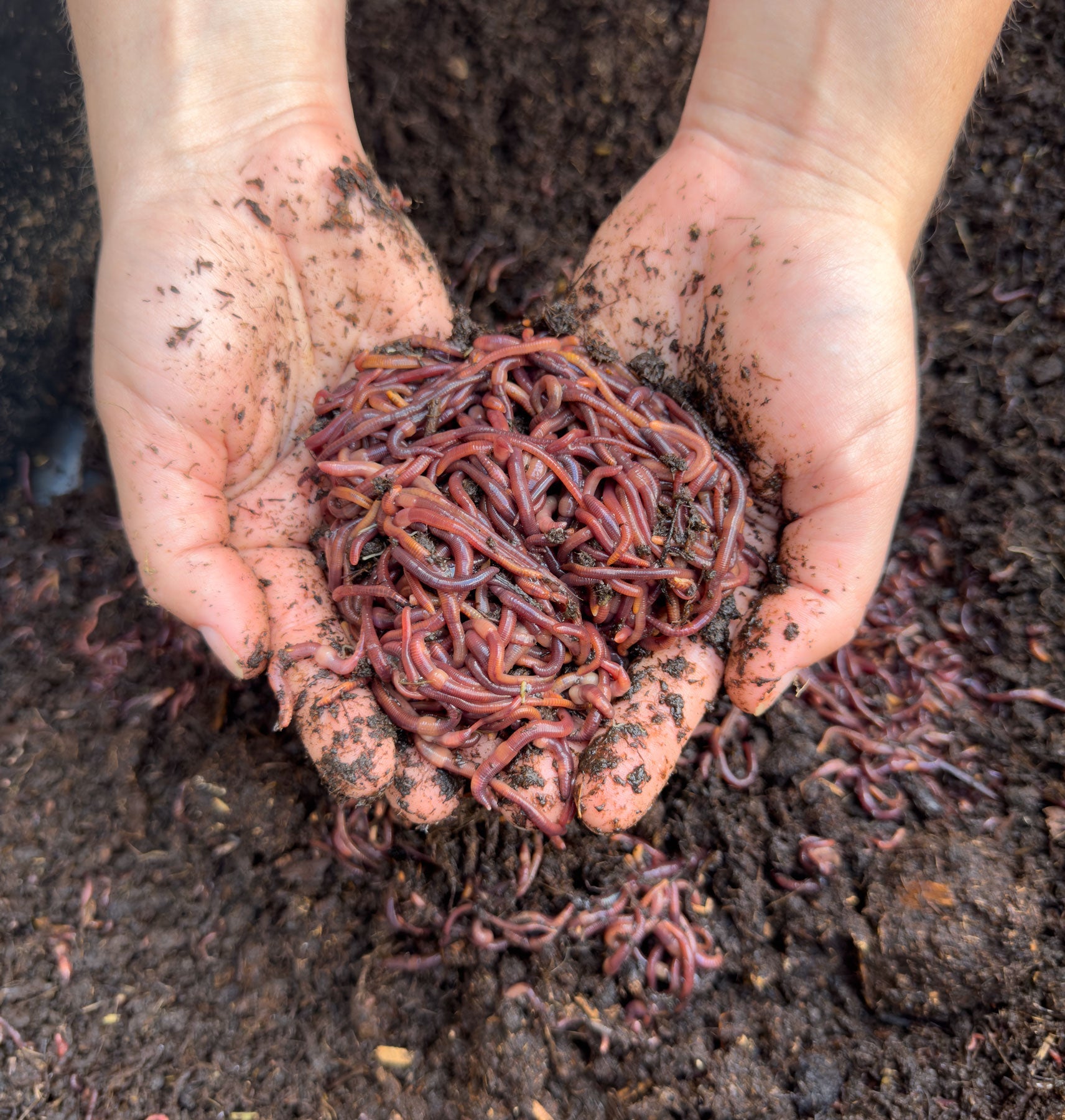Improve Your Fishing Success with Red Wiggler Express Bait Options
Improve Your Fishing Success with Red Wiggler Express Bait Options
Blog Article
Red Wigglers: The Unsung Heroes of Organic Waste Recycling
Red wigglers, or Eisenia fetida, offer as crucial agents in the organic waste reusing process, changing discarded materials right into useful vermicompost. As the world significantly seeks options to deal with waste accumulation and enhance farming efficiency, understanding the duty of these worms ends up being crucial.
What Are Red Wigglers?
The impressive durability of red wigglers, scientifically referred to as Eisenia fetida, highlights their vital function in natural waste recycling. These little, reddish-brown earthworms are typically found in decaying raw material, such as garden compost heaps and manure heaps. Lake Hickory Bait. Unlike various other earthworm species, red wigglers prosper in nutrient-rich atmospheres and are highly effective at breaking down organic materials, making them essential for vermicomposting

(Red Wiggler Express)In addition to their duty in waste decrease, red wigglers contribute to dirt health by improving soil framework and oygenation through their burrowing activities (Lake Hickory Bait). Their existence in composting systems not only improves decomposition rates however additionally advertises a lasting method to throw away monitoring, highlighting their importance in ecological conservation efforts
Benefits of Composting With Worms
Composting with worms, particularly red wigglers, supplies numerous advantages that enhance both waste management and dirt health and wellness. Initially, these worms successfully damage down natural waste, transforming it into nutrient-rich vermicompost that enriches dirt. This process speeds up disintegration, enabling a quicker recycling of kitchen area scraps and other natural products compared to typical composting approaches.
In addition, the vermicompost created by red wigglers is including helpful microorganisms, which help enhance soil structure, oygenation, and dampness retention. This improves the total health of plants, promoting vigorous development and boosted yields in yards and farming settings. Additionally, making use of worms in composting minimizes the production of greenhouse gases, such as methane, adding to an extra sustainable waste monitoring system.

How to Start Vermicomposting
Developing a vermicomposting system is a straightforward process that can yield significant advantages for both waste monitoring and dirt enrichment. To start, pick a suitable container, such as a plastic container or wood box, with adequate ventilation holes to guarantee appropriate air movement. The measurements need to preferably be about 2 feet by 3 feet, allowing sufficient area for the worms to prosper.
Following, prepare bed linen material, which can contain shredded paper, cardboard, or coconut coir. This bed linens needs to be dampened to develop an ideal habitat for the worms. Once the bed linens remains in area, present red wigglers (Eisenia fetida) into the container, typically around one pound of worms for every square foot of surface.
Following the placement of worms, add natural waste, such as fruit and veggie scraps, coffee premises, and smashed eggshells. Stay clear of including dairy products, meat, or oils, as these can produce odors and attract insects. Place the bin in a shaded, temperature-controlled area to keep optimum problems for worm activity. With these actions, you will successfully start a vermicomposting system that adds to sustainable waste management and improves your dirt.
Preserving a Healthy Worm Bin
(Red Wiggler Express)Maintaining a worm bin thriving calls for regular focus and like make certain the wellness of the red wigglers and the performance of the composting procedure. Correct maintenance starts with keeping an eye on the wetness degrees; the bin must be wet yet not soaked. A good policy of thumb is to maintain a consistency similar to a wrung-out sponge.
Oygenation is vital also. Delicately blending the bed linens and food scraps every few weeks avoids compaction and makes certain that all worms have accessibility to oxygen. Furthermore, it is very important to feed the worms appropriately. A well balanced diet regimen of fruit and vegetable scraps, coffee premises, and smashed eggshells should be used in moderation to avoid overfeeding, which can lead to odors and parasites.
If the container comes to be also hot or cool, the worms may end up being worried. By faithfully managing these aspects, one can keep a robust and effective worm bin.
Effect On Sustainable Living
The effective maintenance of a worm bin not only profits the wellness of red wigglers however also adds substantially to lasting living practices. By reusing organic waste, such as cooking area scraps and lawn particles, red wigglers assist divert substantial quantities of material from landfills. This reduction in waste not just reduces greenhouse gas exhausts but additionally minimizes the environmental concern connected with waste administration.
Additionally, the spreadings produced by red wigglers offer as a nutrient-rich natural plant food, improving soil wellness and advertising plant development. This natural option to chemical fertilizers sustains sustainable farming and gardening techniques, decreasing dependence on artificial inputs that can hurt environments. Additionally, worm composting cultivates understanding of waste administration, encouraging individuals and areas to adopt more sustainable habits.

Final Thought
In summary, red wigglers offer as crucial contributors to natural waste recycling with their efficient disintegration of natural materials. By incorporating vermicomposting right into waste administration methods, individuals and areas can substantially decrease waste while promoting environmental sustainability.
Report this page